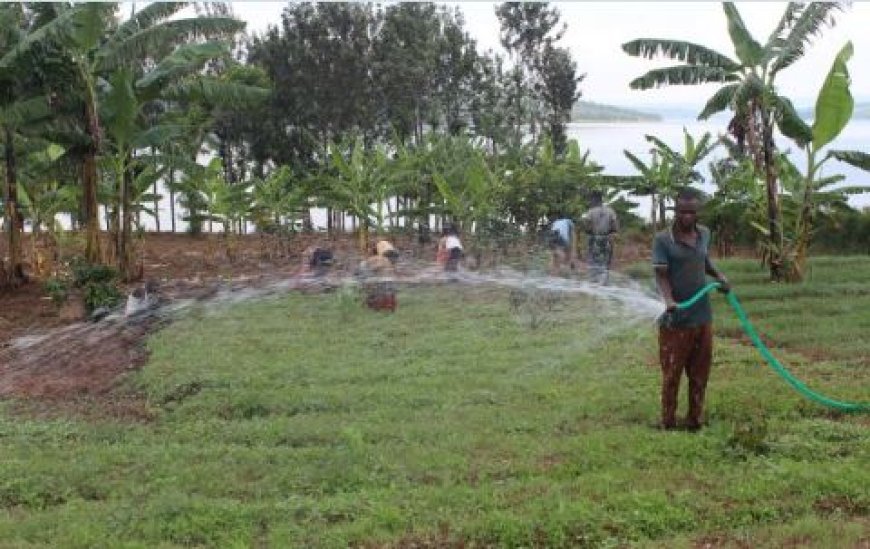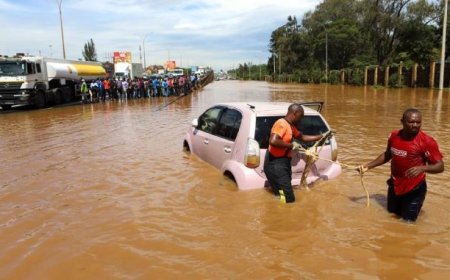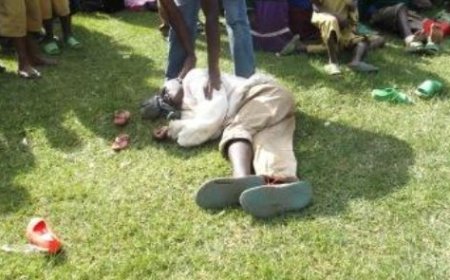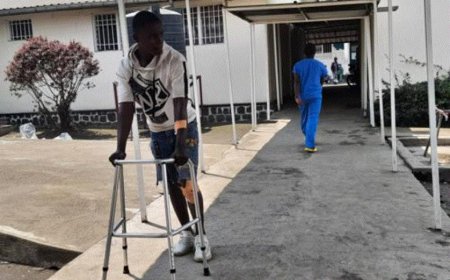Climate Shocks and Agriculture: Farmers Struggle to Adapt
Farmers in Rwanda are struggling with the effects of climate change, including prolonged dry spells, erratic rainfall, and flooding, which have disrupted agriculture and livelihoods. Many farmers are calling on the government to increase funding for irrigation systems to ensure affordability and mitigate these challenges.

In Bugesera District, a climate-change-vulnerable area, farmers are challenged by prolonged droughts that prevent year-round cultivation. Mr Innocent Niyomugabo from Mayange Sector states that his population stops farming when the weather is dry because there is no provision for irrigation. Similarly, Ms Mukabasebya reported losing 500 kilograms of beans to prolonged dry spells, while others, like Mr Nkundukozera, have relied on food relief due to failed harvests.
Since 1971 torrential rain has decreased by 35 to 45 days each year, thus leading to an additional shortage in water supply for agriculture. However, due to the eight lakes located in Bugesera, farmlands are still unirrigated.
Irrigation Solutions and Challenges
Solar-powered irrigation systems offer hope for addressing these issues. For example, Mr Dieudonné Niyodushima, co-founder of Exodus Farm Ltd has moved from diesel-driven irrigation to solar power with government assistance, substantially lowering cost. However, the area under irrigation in Bugesera District is only 3,800 ha because of the lack of funds and hence a large number of farmers do not have irrigation systems.
Solar irrigation is cost-effective, as farmers, such as Mr Nsengiyumva from the Mayange Sector, have shown, but maintenance cooperation and long-term government support are also needed. Vice Mayor Ms Angelique Umwali draws attention to the pressure to generate more investment, as prolonged dry spells have already decimated the Bugesera economy by 40% over the past two decades.
National Climate Adaptation Goals
Rwanda’s Nationally Determined Contributions (NDCs) aim to expand irrigation coverage from 4% to 11% by 2030. The government is planning to dedicate 24 million to the improvement of climate-resilient crops. Expanding crop insurance and promoting climate adaptation remain priorities.
To accomplish those objectives, Rwanda needs 5.364 billion dedicated to adaptation measures. Effective collaborative resource mobilization and prioritization of irrigation projects are critical to secure the national farming economy and ensure food security.
If attempts are made to bridge the irrigation gap and mitigate the effects of climate change, this will foster resilience for the farmers and maintain Rwanda’s agriculture-based economy.
 Kinyarwanda
Kinyarwanda
 English
English






























